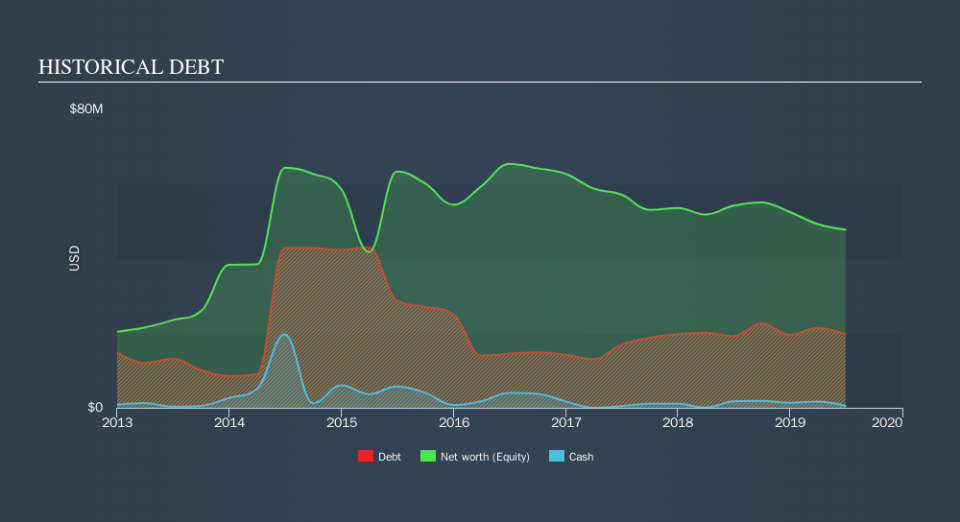Is Vertex Energy (NASDAQ:VTNR) Using Too Much Debt?

Warren Buffett famously said, 'Volatility is far from synonymous with risk.' When we think about how risky a company is, we always like to look at its use of debt, since debt overload can lead to ruin. Importantly, Vertex Energy, Inc. (NASDAQ:VTNR) does carry debt. But the more important question is: how much risk is that debt creating?
When Is Debt A Problem?
Debt and other liabilities become risky for a business when it cannot easily fulfill those obligations, either with free cash flow or by raising capital at an attractive price. Ultimately, if the company can't fulfill its legal obligations to repay debt, shareholders could walk away with nothing. However, a more usual (but still expensive) situation is where a company must dilute shareholders at a cheap share price simply to get debt under control. Of course, debt can be an important tool in businesses, particularly capital heavy businesses. The first thing to do when considering how much debt a business uses is to look at its cash and debt together.
View our latest analysis for Vertex Energy
What Is Vertex Energy's Debt?
As you can see below, Vertex Energy had US$19.7m of debt, at June 2019, which is about the same the year before. You can click the chart for greater detail. However, it does have US$498.2k in cash offsetting this, leading to net debt of about US$19.2m.
How Strong Is Vertex Energy's Balance Sheet?
The latest balance sheet data shows that Vertex Energy had liabilities of US$23.2m due within a year, and liabilities of US$45.5m falling due after that. On the other hand, it had cash of US$498.2k and US$11.7m worth of receivables due within a year. So its liabilities outweigh the sum of its cash and (near-term) receivables by US$56.5m.
When you consider that this deficiency exceeds the company's US$48.4m market capitalization, you might well be inclined to review the balance sheet intently. In the scenario where the company had to clean up its balance sheet quickly, it seems likely shareholders would suffer extensive dilution. There's no doubt that we learn most about debt from the balance sheet. But it is future earnings, more than anything, that will determine Vertex Energy's ability to maintain a healthy balance sheet going forward. So if you want to see what the professionals think, you might find this free report on analyst profit forecasts to be interesting.
Over 12 months, Vertex Energy reported revenue of US$175m, which is a gain of 8.2%, although it did not report any earnings before interest and tax. That rate of growth is a bit slow for our taste, but it takes all types to make a world.
Caveat Emptor
Over the last twelve months Vertex Energy produced an earnings before interest and tax (EBIT) loss. Indeed, it lost US$4.8m at the EBIT level. Considering that alongside the liabilities mentioned above make us nervous about the company. It would need to improve its operations quickly for us to be interested in it. Not least because it burned through US$354k in negative free cash flow over the last year. So suffice it to say we consider the stock to be risky. When we look at a riskier company, we like to check how their profits (or losses) are trending over time. Today, we're providing readers this interactive graph showing how Vertex Energy's profit, revenue, and operating cashflow have changed over the last few years.
If you're interested in investing in businesses that can grow profits without the burden of debt, then check out this free list of growing businesses that have net cash on the balance sheet.
We aim to bring you long-term focused research analysis driven by fundamental data. Note that our analysis may not factor in the latest price-sensitive company announcements or qualitative material.
If you spot an error that warrants correction, please contact the editor at editorial-team@simplywallst.com. This article by Simply Wall St is general in nature. It does not constitute a recommendation to buy or sell any stock, and does not take account of your objectives, or your financial situation. Simply Wall St has no position in the stocks mentioned. Thank you for reading.

